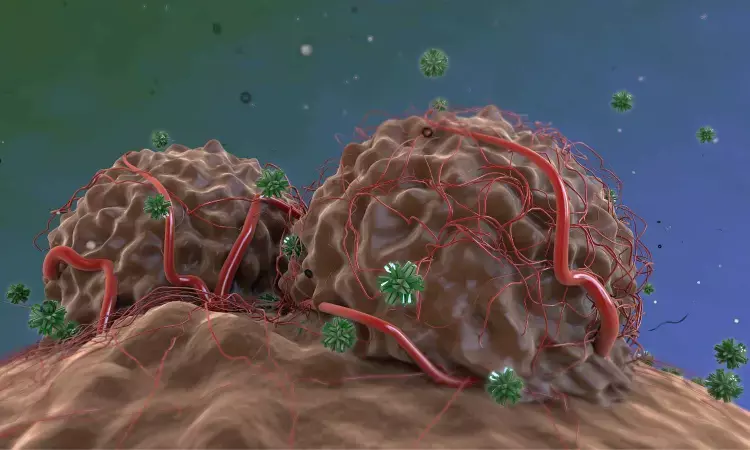- Home
- Medical news & Guidelines
- Anesthesiology
- Cardiology and CTVS
- Critical Care
- Dentistry
- Dermatology
- Diabetes and Endocrinology
- ENT
- Gastroenterology
- Medicine
- Nephrology
- Neurology
- Obstretics-Gynaecology
- Oncology
- Ophthalmology
- Orthopaedics
- Pediatrics-Neonatology
- Psychiatry
- Pulmonology
- Radiology
- Surgery
- Urology
- Laboratory Medicine
- Diet
- Nursing
- Paramedical
- Physiotherapy
- Health news
- Fact Check
- Bone Health Fact Check
- Brain Health Fact Check
- Cancer Related Fact Check
- Child Care Fact Check
- Dental and oral health fact check
- Diabetes and metabolic health fact check
- Diet and Nutrition Fact Check
- Eye and ENT Care Fact Check
- Fitness fact check
- Gut health fact check
- Heart health fact check
- Kidney health fact check
- Medical education fact check
- Men's health fact check
- Respiratory fact check
- Skin and hair care fact check
- Vaccine and Immunization fact check
- Women's health fact check
- AYUSH
- State News
- Andaman and Nicobar Islands
- Andhra Pradesh
- Arunachal Pradesh
- Assam
- Bihar
- Chandigarh
- Chattisgarh
- Dadra and Nagar Haveli
- Daman and Diu
- Delhi
- Goa
- Gujarat
- Haryana
- Himachal Pradesh
- Jammu & Kashmir
- Jharkhand
- Karnataka
- Kerala
- Ladakh
- Lakshadweep
- Madhya Pradesh
- Maharashtra
- Manipur
- Meghalaya
- Mizoram
- Nagaland
- Odisha
- Puducherry
- Punjab
- Rajasthan
- Sikkim
- Tamil Nadu
- Telangana
- Tripura
- Uttar Pradesh
- Uttrakhand
- West Bengal
- Medical Education
- Industry
Hemicolectomy not necessary for post appendiceal neuro endocrinal tumor resection

A new study found that hemicolectomy is unnecessary after completely resectioning an appendiceal neuroendocrinal tumor (NET) sized 1–2 cm by appendectomy as regional lymph node metastases of appendiceal NETs are clinically not relevant. The study was published in the journal The Lancet Oncology.
Oncological resections of appendiceal neuroendocrine tumors (NETs) of 1–2 centimeters in size are becoming increasingly common, but the rarity of these tumors has prevented clear recommendations from being made. Hence researchers conducted a cohort study to assess the malignant potential of appendiceal NETs of 1–2 cm in size in patients with or without right-sided hemicolectomy.
A retrospective cohort study was carried out by pooling data from 40 hospitals in 15 European countries for patients of any age and Eastern Cooperative Oncology Group performance status. Patients with histopathologically confirmed appendiceal NET of 1–2 cm size who had a complete resection of the primary tumor between Jan 1, 2000, and Dec 31, 2010, were enrolled. Patients underwent either an appendectomy only or an appendectomy with oncological right-sided hemicolectomy or ileocecal resection. The frequency of distant metastases and tumor-related mortality was the predefined primary outcomes. Secondary outcomes were the frequency of regional lymph node metastases, the association between regional lymph node metastases and histopathological risk factors, and overall survival with or without right-sided hemicolectomy. The relative all-cause mortality hazard associated with right-sided hemicolectomy when compared with appendectomy alone was estimated by Cox proportional hazards regression.
Key findings of the study:
- Out of the 282 patients with suspected appendiceal tumors, there were 278 with an appendiceal NET of 1–2 cm in size.
- 163 (59%) had an appendectomy and 115 (41%) had a right-sided hemicolectomy.
- Among them 110 (40%) were men, and 168 (60%) were women with a mean age at initial surgery of 36·0 years.
- Median follow-up was 13·0 years (IQR 11·0–15·6).
- Appendiceal NETs were classified as a possible or probable primary tumor in two (1%) of 278 patients with distant peritoneal metastases and two (1%) 278 patients with distant metastases in the liver based on the centralized histopathological review.
- All metastases were diagnosed synchronously with no tumor-related deaths during follow-up.
- With the available data, it was observed that regional lymph node metastases were found in 22 (20%) of 112 patients with right-sided hemicolectomy.
- Nearly 12·8% (95% CI 6·5 –21·1) of patients undergoing appendectomy were estimated to probably have residual regional lymph node metastases based on the histopathological risk factors.
- There was no difference in the overall survival between patients with appendectomy and right-sided hemicolectomy (adjusted hazard ratio 0·88).
Thus, as the regional lymph node metastases of appendiceal NETs are clinically irrelevant and the present study did not show any evidence of an additional postoperative exclusion of metastases or histopathological evaluation of risk factors, right-sided hemicolectomy was not recommended After complete resection of an appendiceal NET of 1–2 cm in size.
Further reading: Nesti C, Bräutigam K, Benavent M, et al. Hemicolectomy versus appendectomy for patients with appendiceal neuroendocrine tumours 1-2 cm in size: a retrospective, Europe-wide, pooled cohort study [published online ahead of print, 2023 Jan 11]. Lancet Oncol. 2023;S1470-2045(22)00750-1. doi:10.1016/S1470-2045(22)00750-1
BDS, MDS
Dr.Niharika Harsha B (BDS,MDS) completed her BDS from Govt Dental College, Hyderabad and MDS from Dr.NTR University of health sciences(Now Kaloji Rao University). She has 4 years of private dental practice and worked for 2 years as Consultant Oral Radiologist at a Dental Imaging Centre in Hyderabad. She worked as Research Assistant and scientific writer in the development of Oral Anti cancer screening device with her seniors. She has a deep intriguing wish in writing highly engaging, captivating and informative medical content for a wider audience. She can be contacted at editorial@medicaldialogues.in.
Dr Kamal Kant Kohli-MBBS, DTCD- a chest specialist with more than 30 years of practice and a flair for writing clinical articles, Dr Kamal Kant Kohli joined Medical Dialogues as a Chief Editor of Medical News. Besides writing articles, as an editor, he proofreads and verifies all the medical content published on Medical Dialogues including those coming from journals, studies,medical conferences,guidelines etc. Email: drkohli@medicaldialogues.in. Contact no. 011-43720751




